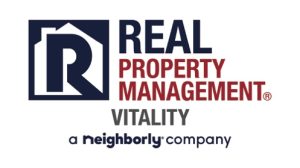Top Maintenance & Repair Solutions for Atlanta Property Owners
Top Maintenance: Ensuring Optimal Performance and Long-Term Equipment Durability
Regular maintenance is a crucial aspect of keeping any equipment or appliance in optimal condition. Whether it’s your car, home appliances, or industrial machinery, neglecting maintenance can lead to decreased performance, frequent breakdowns, and costly repairs. In this article, we will explore the importance of regular maintenance for optimal performance, essential maintenance tasks for long-term equipment durability, key maintenance tips to extend the lifespan of your appliances, and proactive maintenance strategies to prevent costly repairs.
Importance of Regular Maintenance for Optimal Performance
Regular maintenance plays a vital role in ensuring optimal performance of any equipment or appliance. Just like our bodies need regular check-ups to stay healthy, machines require routine maintenance to function at their best. Neglecting maintenance can result in decreased efficiency, increased energy consumption, and even complete system failures.
For instance, studies have shown that regular car maintenance can improve fuel efficiency by up to 4%. This not only saves money on fuel costs but also reduces carbon emissions, contributing to a greener environment. Similarly, regular maintenance of home appliances like refrigerators and air conditioners can help them operate at peak efficiency, reducing energy consumption and extending their lifespan.
Essential Maintenance Tasks for Long-Term Equipment Durability
To ensure long-term equipment durability, certain maintenance tasks should be performed regularly. These tasks may vary depending on the type of equipment, but some common ones include:
1. Cleaning and lubrication: Dust, dirt, and debris can accumulate on equipment, hindering its performance and causing premature wear and tear. Regular cleaning and lubrication of moving parts can prevent friction and ensure smooth operation.
2. Inspection and calibration: Regular inspection of equipment allows for the early detection of any potential issues. Calibration of instruments and sensors ensures accurate readings and reliable performance.
3. Filter replacement: Filters in appliances like air conditioners, furnaces, and vacuum cleaners need to be replaced regularly to maintain optimal airflow and prevent clogging. Neglecting filter replacement can lead to reduced efficiency and increased strain on the equipment.
4. Electrical system maintenance: Checking electrical connections, tightening loose wires, and inspecting for any signs of damage or overheating is crucial to prevent electrical failures and potential hazards.
Key Maintenance Tips to Extend the Lifespan of Your Appliances
To extend the lifespan of your appliances, consider the following maintenance tips:
1. Read the manufacturer’s manual: Familiarize yourself with the recommended maintenance tasks and schedules provided by the manufacturer. Following these guidelines can help you avoid unnecessary breakdowns and ensure optimal performance.
2. Regularly clean and defrost: Appliances like refrigerators, freezers, and ovens should be cleaned regularly to remove food debris and prevent the growth of bacteria. Additionally, defrosting freezers and refrigerators can improve their efficiency and prevent ice buildup.
3. Check and replace worn-out parts: Keep an eye out for any signs of wear and tear, such as frayed cords, cracked hoses, or damaged seals. Replace these parts promptly to prevent further damage and ensure safe operation.
4. Schedule professional inspections: While regular maintenance tasks can be performed by homeowners, it is also essential to schedule professional inspections. Trained technicians can identify potential issues that may go unnoticed and provide expert advice on maintenance and repairs.
Proactive Maintenance Strategies to Prevent Costly Repairs
Proactive maintenance involves taking preventive measures to avoid costly repairs and unexpected breakdowns. By implementing these strategies, you can save both time and money in the long run:
1. Implement a preventive maintenance schedule: Create a schedule for regular maintenance tasks and stick to it. This can include tasks such as oil changes, filter replacements, and system inspections. By staying ahead of potential issues, you can prevent major breakdowns and costly repairs.
2. Keep detailed records: Maintain a record of all maintenance tasks performed, including dates, parts replaced, and any issues identified. This record can help you track the history of your equipment and identify patterns or recurring problems.
3. Train employees or family members: If you have equipment in a commercial or industrial setting, ensure that employees are trained on proper usage and maintenance procedures. Similarly, educate family members on how to use and care for household appliances to prevent misuse and potential damage.
4. Invest in monitoring systems: Utilize advanced monitoring systems that can detect early signs of equipment failure or abnormal performance. These systems can provide real-time alerts, allowing you to take immediate action and prevent costly repairs or downtime.
In conclusion, regular maintenance is essential for optimal performance and long-term durability of equipment and appliances. By performing essential maintenance tasks, following key maintenance tips, and implementing proactive strategies, you can extend the lifespan of your equipment, prevent costly repairs, and ensure smooth operation. Remember, a little investment in maintenance today can save you significant time and money in the future.







